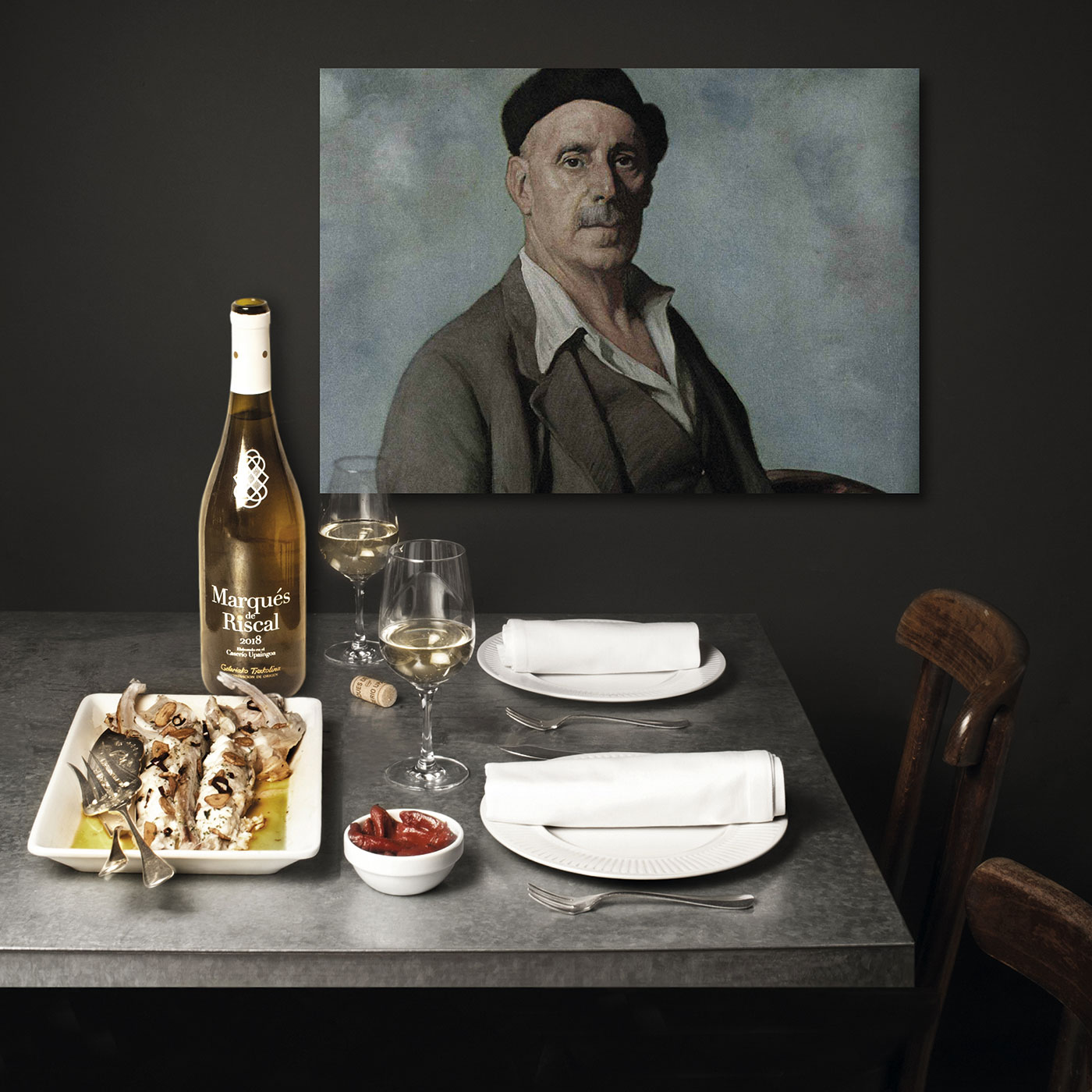Art and Wine
A wine ahead of its time.
14.5º, balanced alcohol and acidity and a black cherry colour with notes of red berries and 18 months in French-oak barrels. Excellent to accompany meat, poultry and fish.

Text: Mª E. Alberti
Photo: Ana Busto
In Euskal Herria eating, drinking and cooking are regarded as the best remedies against adversity and the post prandial conversations are a manifestation of biological wellbeing. And I know something about this feeling with a surname like Aurre Barguengoitia on my mother’s side and raised in Donostia and Hondarribia for twelve years. With txakoli or txakolina I watched the fishermen of Guetaria, Orio and Zarauz bar hopping or pontificating in the fishermen’s brotherhood while washing down orgies of anchovies, bream, turbot and anglerfish (alias toadfish, as they call it round here) with the local txacoli.
These pantagruelian meals also involve motley debates which also have a very local flavour with recurring topics. Which racing “trainera” longboat team will win this year? Which txacoli growing district is the most authentic? Those from Vizcaya defend their home soil and stubbornly go for Bakio, but as I am from Donostia I argue that the most authentic comes from Guipuzcoa, Guetaria, Zumaya, Deba, Motrico… This is gravitas and fame!
At Marqués de Riscal they have had the good taste to make their txakoli in the Upaingoa caserío, in the Guipuzcoa town of Oñati, 60km from the sea and at an altitude of 250m, so its designation of origin falls under Getariako Txakolina, which is known as the Basque coastal wine. The one from Upaingoa is a frisky white with its genuine hondarrabi zuri grapes, moderate alcohol (12.3%) and dazzling yellowish green colour, aromas of pear, apple and grapefruit and very subtle herbal and floral notes, which leave a final aromatic, mouth-filling flavour.
If you had to find its ideal pairing, undoubtedly it is fish, although shellfish, white meat and mature cheeses –Idiazábal it goes without saying– achieve perfect matches. Not having a “txoko” (a place where friends get together) or gastronomic society, this team ordered chargrilled “toad fish” in a restaurant which must be called the Pelotari (Basque pelota players) for a reason.
Under the watchful eye of Zuloaga the team did its duty, drank a toast with txakoli and didn’t leave a trace of the toad fish.
